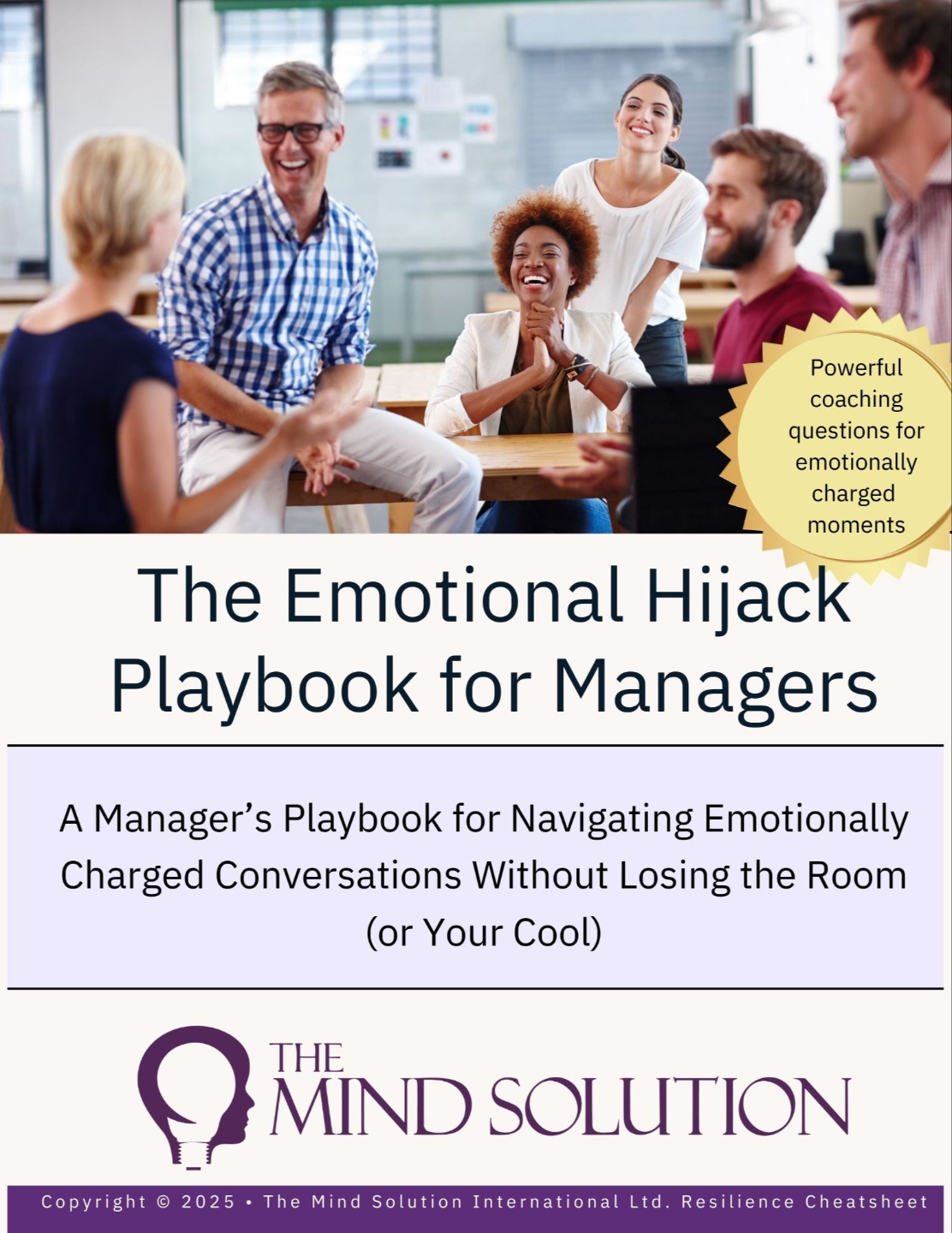Why a Fear of Failure Doesn’t Exist
Aug 18, 2025
Why People Fear Failure
Having sat across from hundreds of people in my work as a therapist, I’m no stranger to hearing stories about “failure.” But what I’m sharing here might invite you to see the topic of fear of failure in a completely different way.
For me, one of the most famous examples is from Thomas Edison, who said:
“I have not failed. I’ve just found 10,000 ways that won’t work.”
I love that quote because what I’ve witnessed in my clients is how we often create unrealistic expectations of ourselves. Then, when things don’t unfold the way we want, we become incredibly hard on ourselves and conclude that we’ve failed.
This is especially true in the workplace. One of the biggest reasons people have sought my help over the years is anxiety, particularly fear of public speaking. I’ve worked with everyone from account executives to executive directors who were terrified of “failing” in a presentation or town hall.
Often, they’ve had experiences where a talk didn’t go to plan — maybe they stumbled over words, maybe they froze. Sometimes they were so focused on the possible negative outcome that their bodies were wracked with physical symptoms.
Naturally, if you put enormous pressure on yourself and make it mean something about your worth, your body will contract, your nervous system will enter fight-or-flight, and your mind will start running worst-case scenarios.
What does fear of failure mean?
Here’s the thing: the very idea that we’ve “failed” is completely subjective.
Just like Edison, we can decide whether something is a “failure” or whether it’s just a step in the learning process. We can have an inner dialogue that says, “I gave it my best shot,” and look for ways to grow from the experience.
In my journey, leaving an HR career to run my own business, there are plenty of moments I could label as failures. But I also know I was always doing the best I could from my current level of thinking, knowledge, and understanding.
So is it failure? Or is it the natural trial-and-error of growth? Meaning is everything.
What does fear of failure feel like?
When people talk about fear of failure, they often describe:
-
A racing heart or tight chest before a big meeting.
-
Loops of “what if” thoughts are playing in their head.
-
Avoidance — finding ways to get out of the situation.
It’s easy to believe these feelings come from the event itself, the presentation, the pitch, the exam. But in truth, they come from our thinking about the event.
Moment to moment, our experience is generated internally, like wearing virtual reality goggles. What we feel is shaped by our perceptual “map” — all our past experiences, thought patterns, and beliefs.
How does fear of failure cause procrastination?
From what I’ve seen, fear of failure is rarely just about failure; it’s about consequences.
“If I do this and it doesn’t work out…”
“…I might be judged.”
“…I might be embarrassed.”
“…I might feel stupid.”
That fear of judgment can feel so uncomfortable that we delay or avoid the task entirely. In this sense, procrastination becomes a protective mechanism.
It keeps us in the familiar, but it also keeps us stuck.
How to overcome fear of failure?
The first step is recognising the true source of the fear: your thinking.
Over 90% of our thought patterns are habitual, repetitive, and automatic. When you see that your “fear” is simply a stream of thought, not the truth, it loses some of its grip.
Thoughts themselves are just electrical impulses in the brain. The only thing that makes them “real” is when we believe them. Left alone, they pass by like clouds. But when we latch onto one, we create a chain reaction, a thought storm that feels solid and urgent.
It’s not always easy to step back from conditioned thinking, which is why I love tools like EFT tapping.
EFT Tapping is clinically proven to neutralise the thoughts, beliefs, and stories we tell ourselves about fear of failure. In employee wellbeing webinars, people feel the shift in the way they feel in minutes, which they love! EFT is such a powerful resource to equip your employees with and is one of the reasons we include EFT Tapping in our Wellbeing Platform.
When you learn to see thoughts for what they are, and regulate your nervous system so you’re not in fight-or-flight, you can act from clarity instead of fear.
Is fear of failure a symptom of OCD?
Let’s start by understanding OCD: obsessive-compulsive disorder can involve repetitive behaviours (like checking the oven or door locks) or intrusive, obsessive thought patterns.
A fear of failure isn’t in itself a symptom of OCD; it’s a thought pattern you’re giving a lot of time and attention. And wherever your attention goes, your energy follows.
OCD may amplify certain fears, but the core mechanism, attaching meaning to a thought, is the same as in any other anxiety pattern.
So… does fear of failure even exist?
If thoughts aren’t facts and fear of failure is just a thought, then in a literal sense, fear of failure doesn’t exist.
It’s a story we tell ourselves. And like all stories, it can be edited, rewritten, or even deleted.
Our time on this planet is short. Life will never go exactly to plan, but that’s part of the adventure. The more we see our “fear” as a creation of the mind, the freer we become to take chances, grow, and live fully.
Final thought: What if you stopped asking, “What if I fail?” and started asking, “What if I learn?” or “What if I succeed?”
If you’d love to equip your employees with the powerful resource of EFT tapping, helping them manage their thoughts, transform their feelings, regulate their nervous system, and lower stress, contact us today to explore our Employee Wellbeing Platform. It’s packed full of EFT tapping videos your people can access anytime they need a reset.
FAQs
1. EFT tapping benefits
EFT tapping combines acupressure with focused attention on a thought or feeling. Benefits include lowering stress hormones, improving focus, calming the nervous system, reducing anxiety, and creating emotional clarity, making it a valuable self-regulation tool in the workplace.
2. EFT tapping for anxiety
EFT tapping is clinically shown to reduce anxiety quickly by calming the body’s stress response and reframing unhelpful thoughts. For employees, this means regaining focus, improving communication, and staying composed under pressure.
3. EFT tapping science
Research from institutions including Bond University shows EFT tapping can significantly lower cortisol levels, reduce emotional distress, and create lasting shifts in mood and performance. Dr Peta Stapleton’s studies confirm results are often felt within minutes.
4. EFT tapping to regulate the nervous system
By tapping on specific acupressure points while focusing on a stressful thought, EFT sends calming signals to the amygdala and restores balance between the sympathetic (fight-or-flight) and parasympathetic (rest-and-digest) systems, key for sustained high performance.
5. How can EFT tapping improve employee performance?
EFT helps employees regulate emotions, think clearly, and break free from fear-based thinking. This leads to better decision-making, more productive meetings, and improved collaboration.
6. Can EFT tapping be delivered at scale in organisations?
Yes — EFT can be taught via live workshops, virtual webinars, or embedded in an Employee Wellbeing Platform so teams can access it anytime. This ensures employees can self-regulate in real time, whenever challenges arise.
The Emotional Hijack Playbook For Managers
A Manager’s Free Resource for Navigating Emotionally Charged Conversations Without Losing the Room (or Your Cool).
Perfect to use in your next one-to-one.







